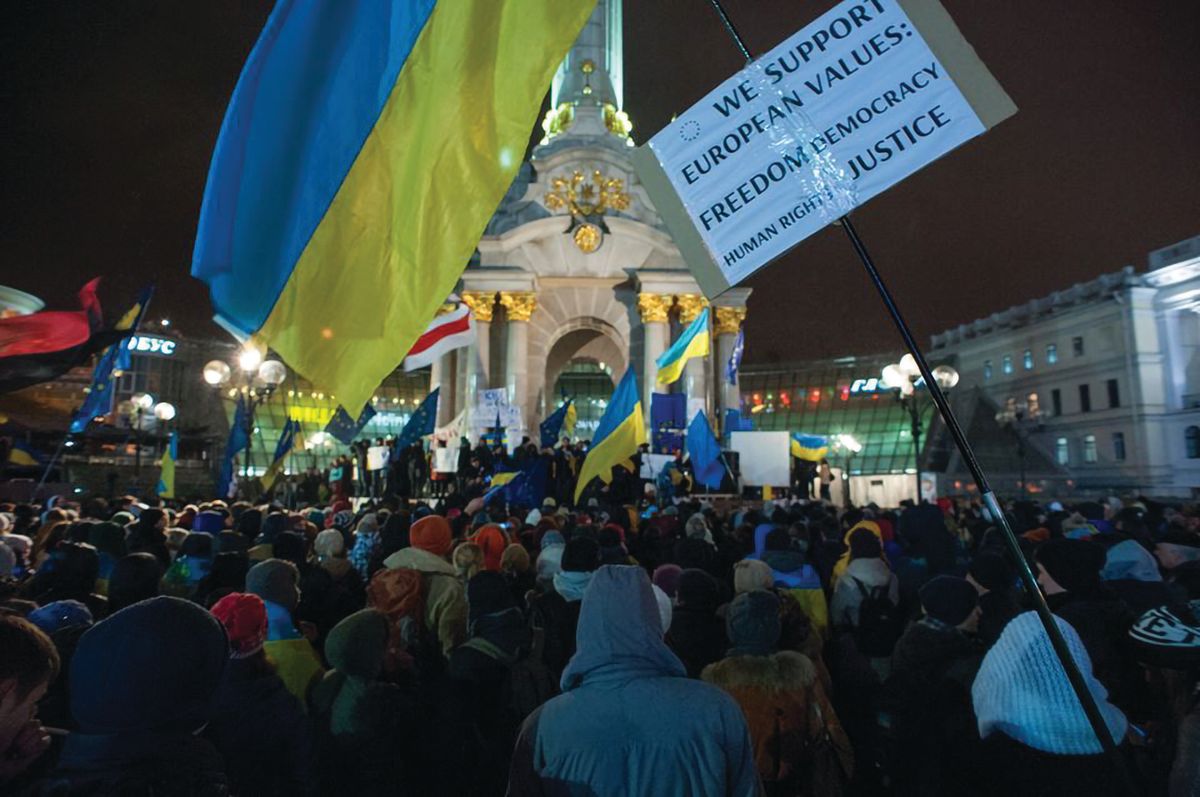In the wake of the Russian invasion last year, the fifth Kyiv Biennial is due to open this autumn across the capital and two other Ukrainian cities. The emphasis will be on “war and displacement”, say the organisers. An artist list for the biennial, entitled Against the Logic of War, is due to be announced next month.
The biennial, organised by the non-profit Kyiv Visual Culture Research Centre, will launch in Kyiv at the Dovzhenko Centre (from 5 October) and two cities in western Ukraine: Ivano-Frankivsk (Asortymentna, from 7 October) and Uzhhorod (Sorry, No Rooms, from 8 October). European institutions have also stepped in as the exhibition will continue in Vienna (Augarten, from 17 October), Warsaw (Museum of Modern Art, from 23 October) and next year in Berlin (venue to be confirmed).
"Instead of abandoning the project and thus submitting to the logic of war that attacks everything civil, the 2023 Biennial draws upon its founding idea: that of being a multi-centric initiative in a European, interconnected form [based on solidarity],” say Georg Schöllhammer, Hedwig Saxenhuber, Serge Klymko—the organisers of the Vienna show—in a statement.
They tell The Art Newspaper: “Trauma is present in Ukraine every day and artists, like everyone else, deal with it. But we too have a special and extended focus on scenarios for possible emancipatory futures for Ukraine and the art world of the country beyond the war in a democratic, global future.”
According to Artnet News, the Dovzhenko Centre will present a project about Ukraine’s Dnipro River following the collapse of the Kakhovka Dam by Russian forces in June.
“Most funding [for the biennial] is provided by international foundations, which are the main [funding] sources for the Ukrainian projects. The same goes for the main show in Vienna; we nevertheless managed to find open ears at the Ministry for Culture in Austria, the City of Vienna and at the Erste Foundation [a bank foundation],” the Austrian curators add, stressing that there is “no oligarch money at all” behind the biennial.
Previous editions have focused on socio-political events in Eastern Europe (Black Cloud, 2019) and the dialogue between both Ukrainian and international artists, intellectuals and philosophers, and different types of audiences (The School of Kyiv, 2015).


